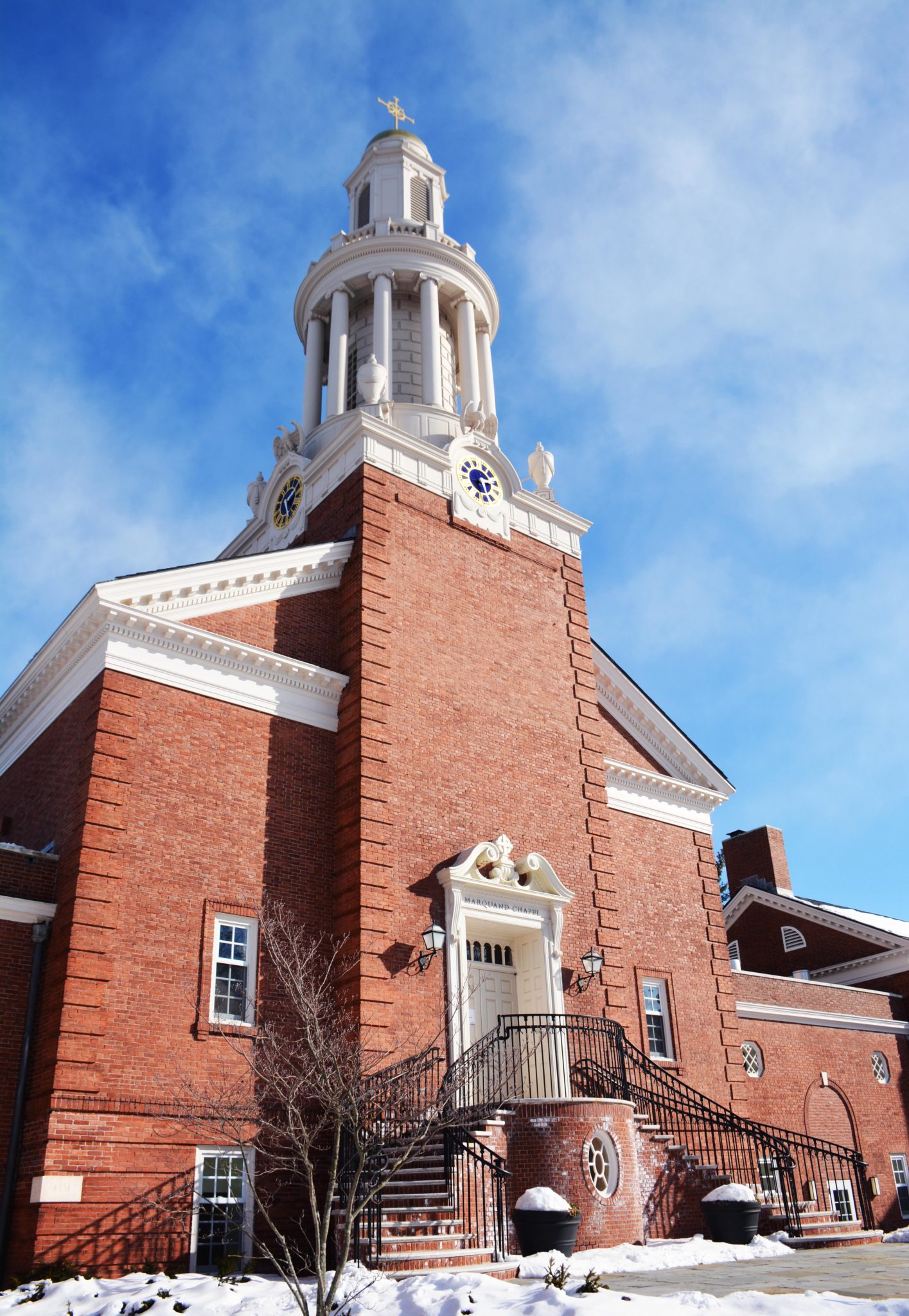
Schirin Rangnick
The Yale Divinity School is slated to raise enough funds to meet 100 percent of its students demonstrated need for tuition by 2022, after receiving a recent gift of tens of millions of dollars, Divinity School Dean Gregory Sterling told the News.
According to Sterling, the school has raised $31 million out of the necessary $53 million to fund its tuition plan by 2022. The plan, which is outlined in the Divinity School’s Strategic Plan from 2015, is meant to “free students from debt and for vocation,” according to the school’s website. Sterling added that tuition support will bring more students to Yale over other divinity schools and help Divinity School graduates who pursue relatively low-paying careers compared to other professional school graduates.
“We will need at least one or more gifts in the eight-digit range to make our goal,” Sterling said. “We have one that is promised which gives me hope that we will make it. Around 5 to 10 percent of our students do not have demonstrated need and do not receive financial aid. If we make our goal, it will not cover all demonstrated financial need, but all demonstrated need for tuition.”
The exact amount of the recent gift and the name of the donor remain unclear. Yale Divinity School’s Associate Dean of Admissions and Financial Aid Vernice Randall declined to comment for the story.
According to Sterling, the Divinity School often has to compete with schools and self-standing seminaries with bigger endowments, such as the Harvard Divinity School, Princeton Theological Seminary and Luther Theological Seminary. The primary reason why the Yale Divinity School loses students to competing institutions is because of its financial aid programs, Sterling explained.
At $24,920, the Divinity School offers the lowest tuition fee among the University’s graduate and professional schools. According to Sterling, around 95 percent of students at the school are on financial aid this year. The school covers 76 percent of each of these students’ demonstrated need for tuition — a 30 percent increase in coverage from five years before.
But according to the school website, students currently enter the school with an average of $28,000 in debt and graduate with over $55,000 in debt. In comparison, all students in the theological studies master’s program at the University of Notre Dame receive full tuition scholarships, and the Harvard Divinity School provides tuition support and $10,000 stipends to assist with living expenses in some cases. Starting in fall 2015, Louisville Presbyterian Theological Seminary became tuition-free for all master’s students and is planning to offer living stipends.
In an email to the News, Sterling said providing 100 percent tuition support is particularly important because Divinity School graduates do not typically enter lucrative fields, instead choosing to work in nonprofit businesses like churches, private secondary schools and chaplaincies.
“[Divinity School students] will make smaller salaries and cannot afford significant debt,” Sterling said. “We do not want their educational debt to determine their future.”
According to Jim Hackney DIV ’79, the Divinity School’s senior director of development, raising funds for the school is also particularly difficult because the majority of its alumni work in nonprofit fields and do not have enough wealth to donate. Still, the school is investing in tuition support to make sure that students can “go into careers because they are called to them” without worrying about salaries, Hackney said.
In an email to the News, Rolando Rodriguez DIV ’19, the Divinity School’s student government president, said the school already has one of the most competitive financial aid programs in the country. However, the school could attract even more students from underrepresented backgrounds if it increased its tuition support, Rodriguez said. He added that such a policy would alleviate anxiety for students when they are looking for jobs, as the number of positions available for ministers and religious academics is decreasing.
Rodriguez added that the school should consider providing stipends to students from low-income backgrounds and partially funding their housing and various academic costs.
“I do not think that going tuition-free should be the end goal, and I do not believe that it is,” Rodriguez said. “I think there needs to be housing stipends or book stipends opportunities available to students. … The average rent in New Haven continues to rise each year.”
Michael Libunao-Macalintal DIV ’20 — Community Life Committee representative of the Yale Divinity School’s student government — said identifying those who are in need of financial support is often difficult because some students receive monetary aid from their home diocese.
Sterling became the dean of the Divinity School in 2012.
Serena Cho | serena.cho@yale.edu







